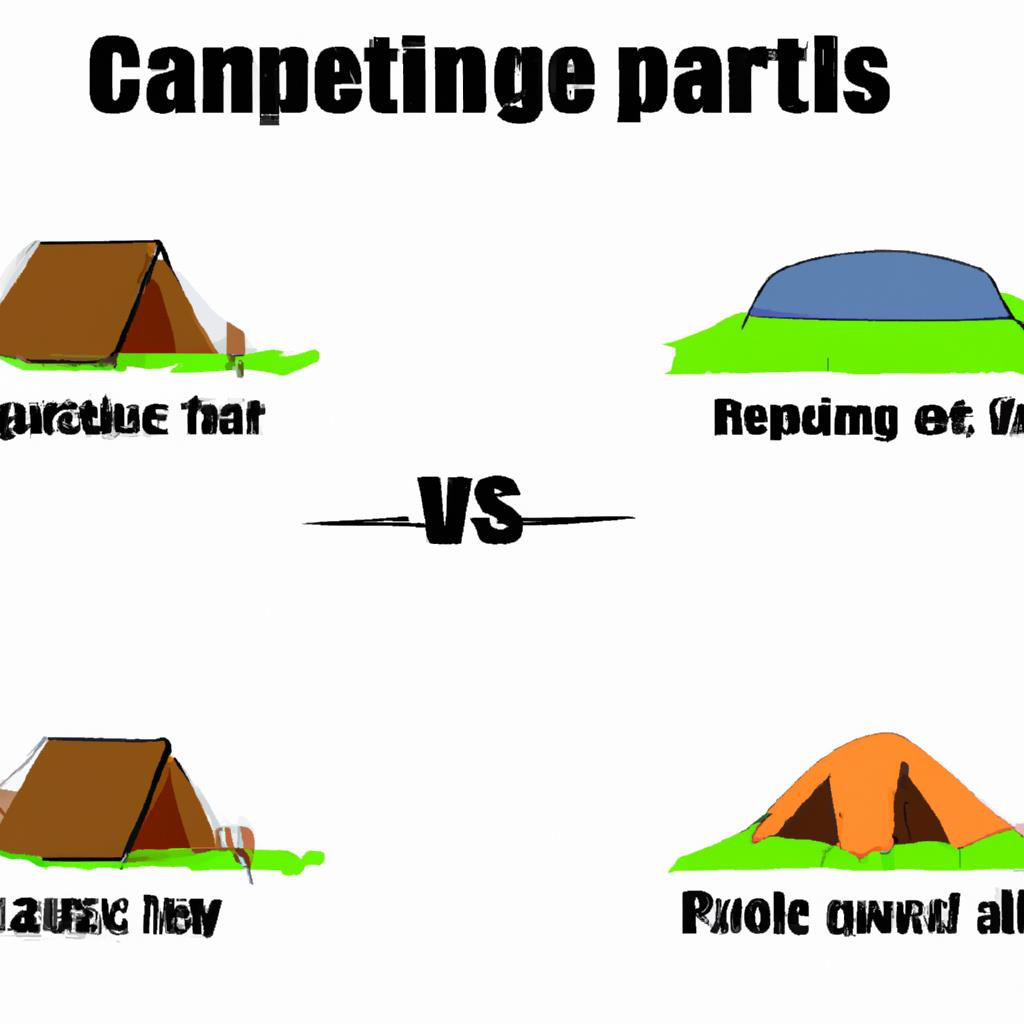When it comes to camping, there are two main options to choose from: primitive camping and developed campsites. Each has its own set of pros and cons, and it ultimately comes down to personal preference. Let's take a closer look at the differences between the two and weigh the pros and cons of each.
Primitive Camping
Primitive camping, also known as backcountry camping, involves camping in remote areas with few or no amenities. This type of camping is all about getting back to nature and roughing it in the great outdoors. Here are some pros and cons of primitive camping:
Pros:
1. Privacy: Primitive camping offers a sense of seclusion that you won't find at developed campsites. You're likely to have the place all to yourself, allowing you to truly disconnect from the hustle and bustle of everyday life.
2. Connection with nature: Camping in a remote area allows you to experience nature in its purest form. From the sights and sounds of the wilderness to the peacefulness of a starry night sky, primitive camping can be a truly transformative experience.
3. Freedom: Without the constraints of designated campsites and campgrounds, you have the freedom to set up camp wherever you please. This flexibility allows you to tailor your camping experience to your own preferences.
Cons:
1. Lack of amenities: Primitive camping means going without amenities like running water, toilets, and showers. This can make for a more challenging camping experience, especially for those who are used to the comforts of home.
2. Safety concerns: Camping in remote areas can pose potential safety risks, such as encounters with wildlife or getting lost in the wilderness. It's important to be prepared and knowledgeable about the area you're camping in.
3. Leave no trace: With no facilities to rely on, it's crucial to practice Leave No Trace principles and minimize your impact on the environment. This includes packing out all trash, using biodegradable soap, and respecting wildlife habitats.
Developed Campsites
Developed campsites are equipped with amenities like picnic tables, fire pits, and restroom facilities. They offer a more structured camping experience with designated campsites and campground hosts. Here are some pros and cons of developed campsites:
Pros:
1. Convenience: Developed campsites provide the convenience of amenities like toilets, running water, and sometimes even electricity. This can make for a more comfortable camping experience, especially for families or those new to camping.
2. Safety: Campground hosts and other campers are nearby in case of emergencies, providing an added level of safety and security. Developed campsites are also typically easier to access and navigate, making them ideal for beginner campers.
3. Community: Developed campsites often attract other campers, creating a sense of community and camaraderie. This can be a great way to meet new people and share camping tips and stories.
Cons:
1. Crowds: Developed campsites can be crowded, especially during peak camping season. This can detract from the serenity of the camping experience and limit your privacy.
2. Rules and regulations: Developed campsites typically have more rules and regulations in place to ensure the safety and enjoyment of all campers. This can be restrictive for those who prefer a more laid-back camping experience.
3. Cost: Developed campsites often come with a fee, whereas primitive camping is usually free or requires a permit. The cost of developed campsites can add up, especially for longer camping trips.
Ultimately, the decision between primitive camping and developed campsites comes down to personal preference and camping style. Some campers prefer the solitude and simplicity of primitive camping, while others appreciate the convenience and amenities of developed campsites. Whichever you choose, be sure to respect the land and leave no trace to preserve the beauty of our natural landscapes for future generations to enjoy.


leave a comment